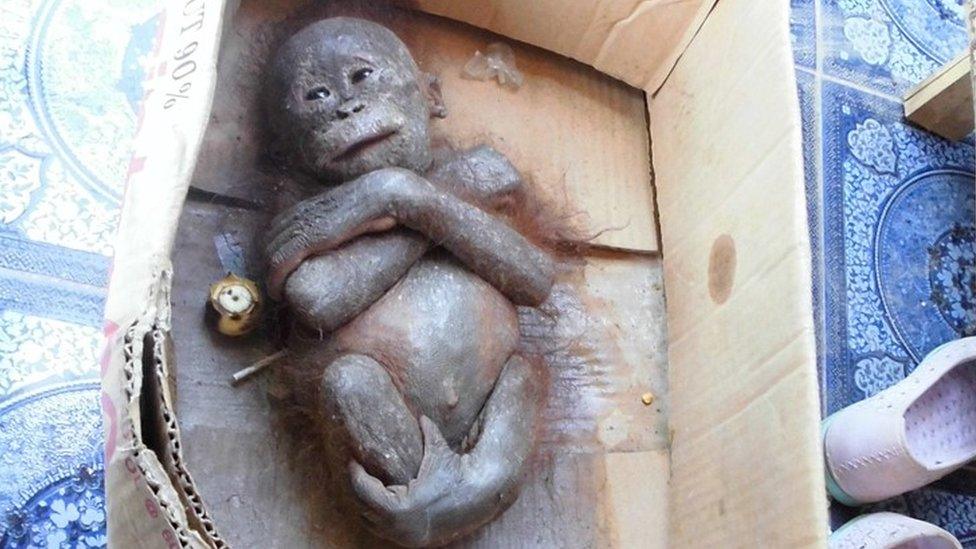Sussex charity takes slow lorises to rainforest
- Published
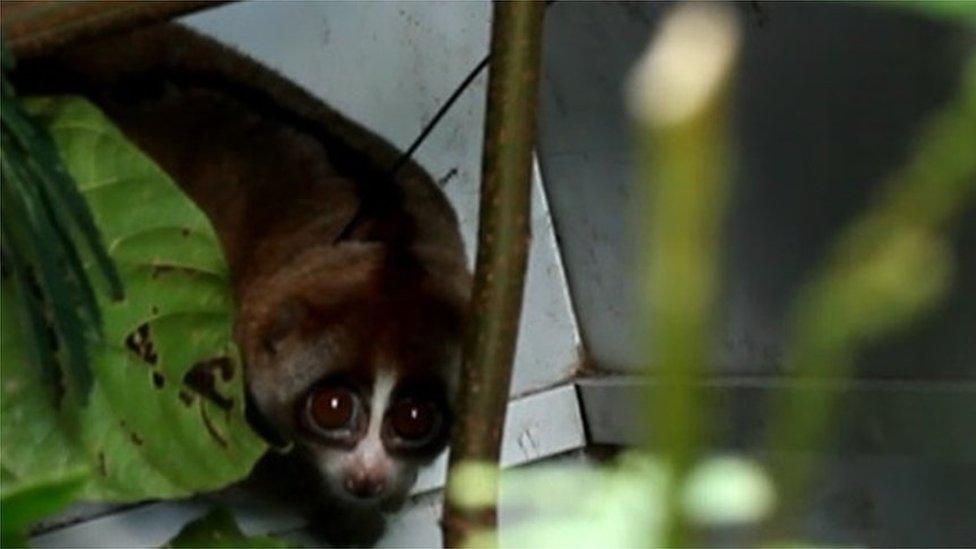
Four males - Tamper, Tyson, Armstrong and Partos - and four females - Poppy, Cute, Willi and Dandelion - have been released
Eight slow lorises that were seized from illegal traders in Indonesia have been nursed back to health and taken to a protected Sumatran rainforest ahead of their release into the wild.
The animals were rehabilitated at a primate centre by East Sussex charity, International Animal Rescue (IAR).
Charity workers monitored their behaviour, health and eating as they returned to their natural, wild state.
The slow lorises were rescued from traders in Western Java last September.
The creatures are being kept for a month in an enclosed area, and they have radio collars around their necks for monitoring after their release.
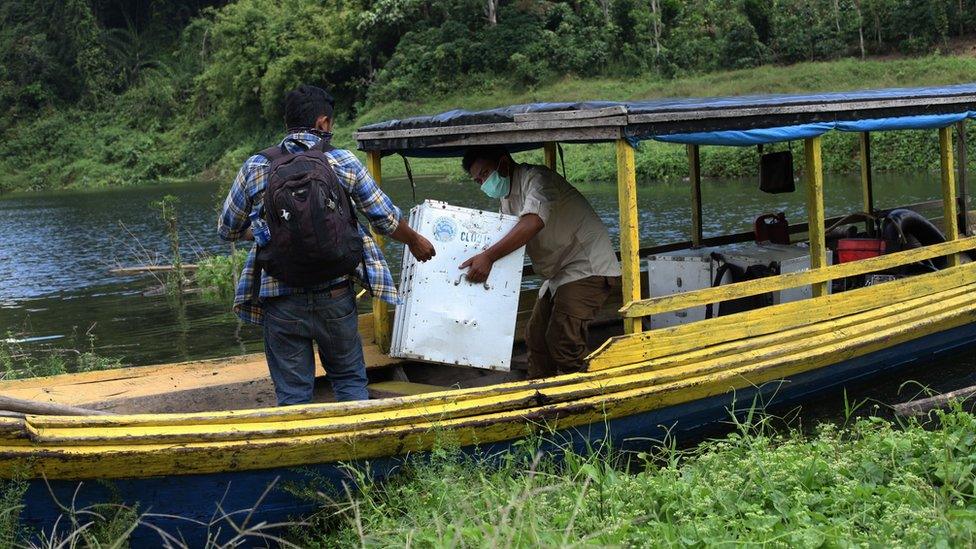
The animals will be kept in an enclosed area for a month and then released and monitored
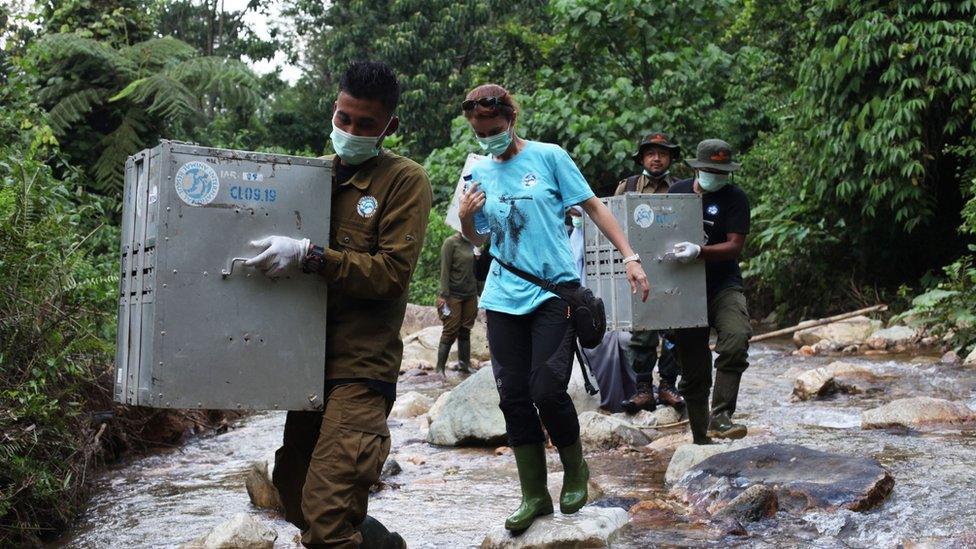
Charity workers transported the animals to the protected rainforest
Co-ordinator Bobby Muhidin said: "Our team will monitor the lorises for about a year."
IAR ran a celebrity-backed Tickling is Torture, external campaign last year to expose the cruelty involved in keeping the shy, nocturnal primates as pets.
It followed an online craze where YouTube clips showed pet slow lorises with their big eyes, soft fur and slow movements being tickled and handfed.
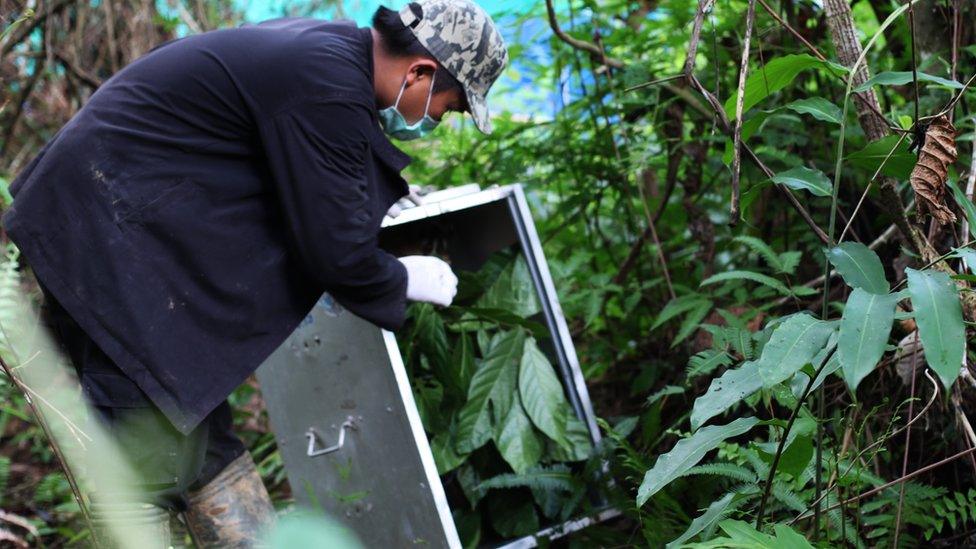
The animals were nursed back to health at a primate centre
But IAR said when a slow loris was tickled it raised its arms as a defensive gesture to activate a venomous gland - not because it was enjoying it - and given the chance would give a serious bite.
It said most rescued slow lorises had dehydration, malnutrition - and stress exacerbated by having their teeth cut.
The charity's latest slow loris release comes one year after its campaign launch, but Alan Knight, chief executive of the Uckfield charity, said the illegal trade remained a "huge threat".
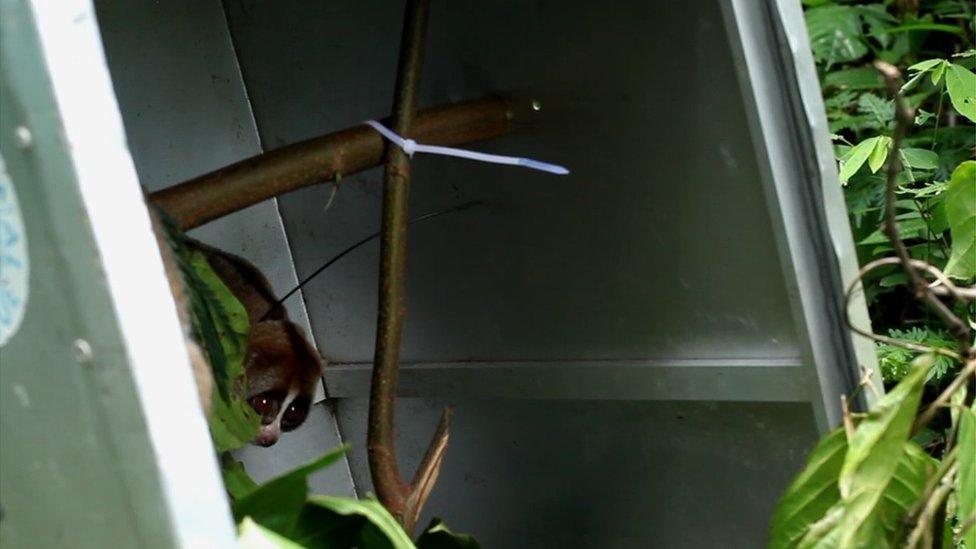
They were seized from illegal traders last year - experts said their health had improved and their bones and teeth were in good condition
- Published28 December 2015
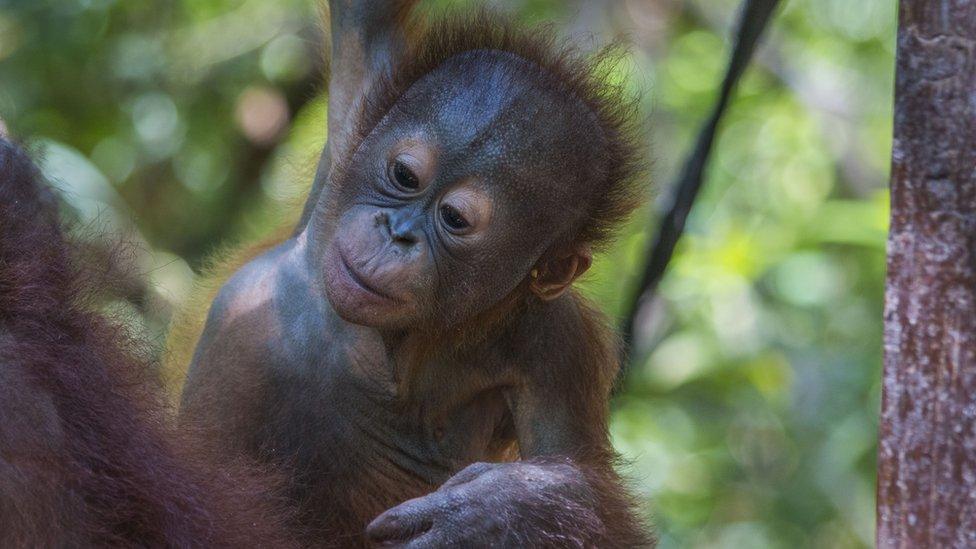
- Published18 October 2015
